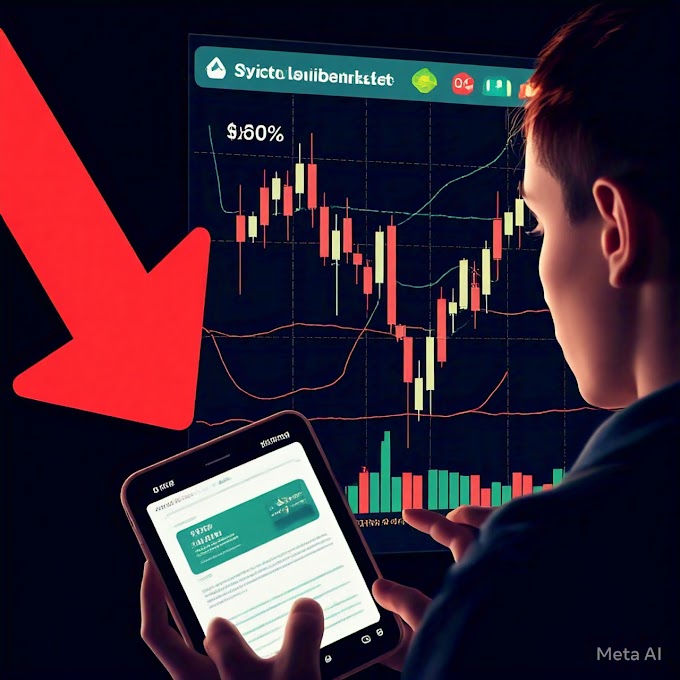Introduction
The world of cryptocurrency often intertwines with viral culture, creating a volatile mix of hype, hope, and heartbreak. Recently, Haley Welch, a social media sensation, found herself embroiled in a cryptocurrency scandal involving her meme coin, HW Tua. The coin's meteoric rise and catastrophic crash left many investors penniless, sparking heated debates about influencer responsibility, financial literacy, and the risks of unregulated markets. In this article, we delve into the HW Tua coin saga, exploring the events leading up to the scandal, its aftermath, and the broader implications for the crypto world.
Table of Contents
- Who Is Haley Welch?
- What Is HW Tua Meme Coin?
- The Rise and Fall of HW Tua
- Understanding Rug Pulls in Cryptocurrency
- Public Backlash and Legal Ramifications
- Lessons for Investors: Avoiding Crypto Scams
- FAQs About Meme Coins and Crypto Scandals
- Conclusion
1. Who Is Haley Welch?
Haley Welch gained internet fame for a viral joke involving an offbeat comment during a podcast. Her quick wit and relatable humor turned her into a cultural icon, with Rolling Stone dubbing her a "hero we need." However, fame is a double-edged sword, and Welch's popularity soon extended beyond her comedic beginnings into areas she might not have anticipated, such as cryptocurrency.
2. What Is HW Tua Meme Coin?
HW Tua was introduced as a meme coin—a type of cryptocurrency often created as a joke or to leverage viral trends. Welch became the face of this coin, attracting fans who trusted her persona. The coin was marketed with a blend of humor and promise, leading to an initial frenzy among investors.
3. The Rise and Fall of HW Tua
When HW Tua launched, it garnered massive attention, reportedly making $2 million in just ten minutes. However, the excitement quickly turned to despair as the coin's value plummeted, leaving many investors with significant losses. Allegations of a "rug pull" began to surface, with claims that insiders held 96% of the supply and sold off their shares, causing the crash.
4. Understanding Rug Pulls in Cryptocurrency
A rug pull is a type of scam where developers create a cryptocurrency, promote it heavily, and then suddenly sell off their holdings, leaving investors with worthless tokens. Rug pulls exploit the lack of regulation in the crypto market, often targeting inexperienced investors through hype and influencer endorsements.
5. Public Backlash and Legal Ramifications
The fallout from the HW Tua crash was immediate and severe. Many investors took to social media, sharing stories of financial ruin and demanding accountability. Some filed complaints with regulatory bodies like the SEC. Legal experts suggest that if the allegations are proven, Welch and her team could face charges of fraud and theft, potentially leading to significant penalties.
6. Lessons for Investors: Avoiding Crypto Scams
- Research Thoroughly: Understand the team, technology, and purpose behind a coin before investing.
- Beware of Hype: Avoid coins promoted solely through social media or celebrity endorsements.
- Diversify Investments: Never put all your savings into a single, speculative asset.
- Understand Risks: High returns often come with high risks, especially in unregulated markets.
FAQs About Meme Coins and Crypto Scandals
Q1: What is a meme coin?
A meme coin is a cryptocurrency inspired by internet memes or trends, often created as a joke or satire. Examples include Dogecoin and Shiba Inu.
Q2: How do rug pulls work?
Developers promote a cryptocurrency to attract investors, then sell off their holdings after the price rises, causing the value to crash and leaving investors with worthless tokens.
Q3: Can influencers be held accountable for crypto scams?
Yes, influencers can face legal action if they are proven to have knowingly participated in fraudulent activities.
Q4: What should I do if I suspect a crypto scam?
Report the scam to relevant authorities, such as the SEC in the U.S., and avoid investing further.
Conclusion
The HW Tua debacle serves as a cautionary tale about the intersection of fame and finance. While Haley Welch’s intentions remain unclear, the incident highlights the risks of blindly following influencers and the dangers of investing in unregulated markets. For investors, the key takeaway is simple: approach every opportunity with skepticism, conduct thorough research, and never invest more than you can afford to lose.



.png)




